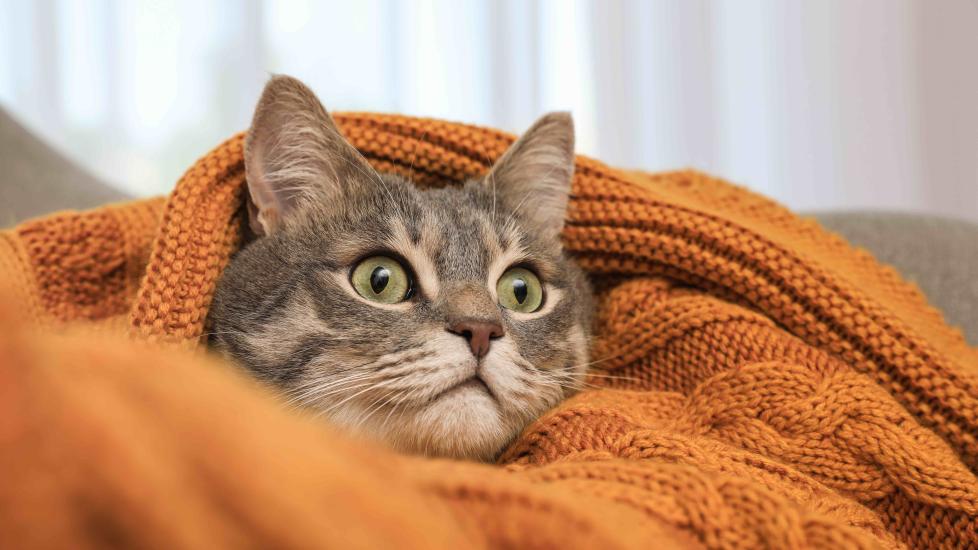 As a pet expert, I’ve encountered various behaviors that our beloved furry friends exhibit. One such behavior that can be concerning for cat owners is the habit of adult cats suckling blankets or other soft objects. This seemingly infantile action may leave you scratching your head and wondering if it’s normal or indicative of deeper issues. In this article, we delve into the reasons behind this behavior, its implications for your feline friend’s well-being, and strategies to address it in a way that respects their natural instincts while ensuring they receive the care they need.
As a pet expert, I’ve encountered various behaviors that our beloved furry friends exhibit. One such behavior that can be concerning for cat owners is the habit of adult cats suckling blankets or other soft objects. This seemingly infantile action may leave you scratching your head and wondering if it’s normal or indicative of deeper issues. In this article, we delve into the reasons behind this behavior, its implications for your feline friend’s well-being, and strategies to address it in a way that respects their natural instincts while ensuring they receive the care they need.
Understanding the Basics:
Suckling, also known as “blanket chewing” or “nursing behavior,” is when a mature cat exhibits nursing actions towards something other than her own kittens. It’s important to note that this behavior isn’t limited to female cats; males can display this too. While it’s common during kittenhood, it typically ceases once they reach adulthood. However, some cats continue the practice even after reaching sexual maturity.
Potential Causes of Adult Suckling Behavior:
1. Survival Instincts: Cats have strong survival instincts that can sometimes manifest in unexpected ways. Suckling could be an instinctual response triggered by stress or anxiety, which makes them revert to behaviors associated with comfort and security.
2. Nutritional Deficiencies: If your cat’s diet lacks essential nutrients, she might try to supplement her intake through alternative methods like sucking on fabric. Make sure your cat has access to a balanced and complete food regimen.
3. Hormonal Imbalances: Changes in hormone levels due to puberty, pregnancy, or spaying/neutering procedures can lead to unusual behaviors, including suckling. Hormones play a significant role in a cat’s overall health and mood.
4. Loneliness or Boredom: A lack of companionship or stimulation can cause a cat to seek solace in repetitive behaviors. Suckling might serve as a coping mechanism for loneliness.
5. Stress Relief: Life changes, such as moving homes or introducing new pets to the household, can induce stress in cats. They might find comfort in suckling to alleviate these feelings.
Addressing the Issue:
If you notice your cat engaging in persistent suckling, consider consulting with a veterinarian to rule out any underlying medical conditions. Once cleared medically, there are several steps you can take to manage the behavior:
- Environmental Enrichment: Provide plenty of toys, perches, and scratching posts to keep your cat mentally stimulated and physically active.
- Regular Playtime: Spend quality time playing with your cat daily. Interactive play helps reduce boredom and releases endorphins, promoting happiness and contentment.
- Healthy Diet: Ensure your cat receives all necessary vitamins and minerals by feeding high-quality foods appropriate for her age and lifestyle. Consider discussing dietary supplements with your vet if needed.
- Comfort Items: Offer alternatives to blankets, such as plush toys specifically designed for cats to chew or nurse on. These items can redirect the behavior away from household fabrics.
- Consistent Routine: Cats thrive on routine. Maintain regular meal times, play sessions, and bedtime to create a stable environment that reduces stress.
- Supervision and Redirection: Keep an eye on your cat’s activities and gently redirect her away from inappropriate objects without scolding. Positive reinforcement techniques work best, rewarding desired behaviors instead.
In conclusion, understanding why your cat is suckling as an adult is crucial for providing the proper care and support. By addressing potential causes and implementing management strategies, you can help ensure your feline companion lives a happy, healthy life filled with love and affection. Remember, each cat is unique, so what works for one may not work for another. Patience and observation will go a long way in managing this behavior effectively.
